While commercial loans and residential loans have their common points, they are still very different. So what is it exactly that sets these two apart? And most importantly, what should you know if you are a business owner looking for a mortgage? Well, this article will tell you a couple of key differences.
Lenders, Borrowers, and Payments
Residential loans are usually made between an individual buyer and a bank. However, a commercial mortgage replaces the individual with a whole company. When taking out a commercial loan, it’s in your best interest (for tax purposes) to sign as a representative of a certain business – simply because the whole area will be marked for business use.
Commercial Loans: Higher Risk
A commercial loan is generally at a higher risk than the residential ones. Here’s an example: if a person has two mortgages – one residential and one commercial – they will always prioritise the residential one. Once financial difficulties hit, it’s obvious that they will pay their home mortgage first and default on the other.
Commercial Loans Have Higher Interest Rates
Commercial loans will also have higher interest rates than residential loans – and consequently, a shorter term. This is also because commercial mortgages have a smaller secondary business market.
A down payment is also an issue that makes all the difference. For a residential loan, the down payment is usually negotiable, and it’s also very easy to get a mortgage with zero down payments if your credit is good. All you may have to pay is an LMI (Lender’s Mortgage Insurance) if your loan-to-value ratio goes above 80%.
Commercial loans, as stated, are riskier than residential mortgages. Therefore, not only will it need a loan-to-value ratio that goes over 80%, but you’ll also need a 20% down payment. You may also be able to negotiate to bring it down at 10% if the business climate is strong.
Commercial Loans and Business Plans
If you want to get your hands on a commercial loan, then keep in mind that the business plan is just as important as your credit score. No one will give you a credit for a commercial loan if your business looks like it will go downhill in less than two years.
Strong Cash Flow
If you want to take out commercial loans, you’ll need to ensure that the business you’re planning to raise there will have a good cash flow. So, if you are applying for a home loan, be prepared to answer questions such as the following:
- Who will pay for the utilities of the business?
- What kind of maintenance will you need to sustain your business?
Be Ready To Answer A Lot Of Questions
You will receive numerous questions regarding the financial aspects of your business. As someone looking for a commercial mortgage, you should be ready to show proof of your profits and revenue. Furthermore, you should also prepare a detailed plan that will show exactly how that commercial property will help you generate enough money to cover your loan.
Loan Terms, Penalties, and Restrictions
A homeowner will be allowed to make payments on their mortgage for a longer period of time. usually between 25 to 30 years. A residential buyer will also have more options due to the smaller monthly payments.
On the other hand, commercial loans will take from 5 to a maximum 20 years, with obviously larger payments. Furthermore, while the repayment period for a residential loan will last only until the end of a loan, the one for the commercial loan is generally longer than the term of the loan. As a commercial borrower, however, you may be able to have your loan repayment schedule customised in order to fit your particular requirements.
More Restrictive Payments
Commercial loans can also have restrictions when it comes to payment. The purpose is to preserve an anticipated yield from a lender when it comes to the loan. For instance, if a borrower settles a debt before it has reached maturity, then he may be required to pay a penalty for prepayment. These can be usually discussed with the lender along with the term on the loan, so make sure to get all of your questions out.
Final Thoughts
As you can see, there’s a spectrum of differences when it comes to residential and commercial loans. If anything, you can say that the commercial mortgage is a business loan: unless your business shows promise, you won’t be able to get it.
If you’re looking for a good commercial mortgage, contact ALC Commercial today. We have some very good rates, and we also have highly trained people that can help you get your business going without too much of a hassle.









